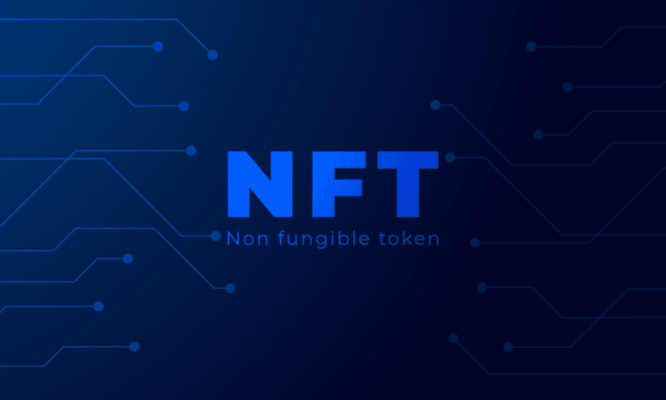- The rise in the popularity of NFTs in recent years
- NFTs are unique and cannot be counterfeited
- Examples of platforms for creating and selling NFTs
An NFT (non-fungible token) is a digital identifier based on blockchain technology. It is used to certify the uniqueness of digital assets. An NFT guarantees authenticity and protects against counterfeiting. For example, it can be used for artworks. There can be two paintings that look exactly the same, but only one of them is the original while the other one is a replica. In the digital world, the original is marked with an NFT token.
Unlike cryptocurrencies, which are fungible and have the same value, each NFT is a unique identifier. It cannot be substituted or counterfeited.
An NFT is based on the use of blockchain technology, which ensures transparency and security of transactions. Each NFT is recorded on the blockchain as a unique digital record that contains information about the owner, transaction history, and the asset itself. Thanks to this, it is possible to validate the authenticity and history of each non-fungible token.
The rise in the popularity of NFTs in recent years
The popularity of NFTs has grown significantly over the past few years. This is the result of several factors.
- Thanks to the development of blockchain technology and the digital economy, users are able to create and sell unique digital assets that were previously inaccessible to the general public.
- NFTs provide an opportunity for artists, musicians, video game developers, and other creators to monetize their work and profit from the sale of digital assets. This opens up new opportunities for the creative community and helps artists find new fans and investors.
Finally, non-fungible tokens are attracting the attention of investors who recognize that the value of such assets can increase. Some NFTs have already been sold for millions of dollars on auctions and trading platforms. This is generating interest in the market and encouraging its further development.
NFTs are unique and cannot be counterfeited
One of the most important features of NFTs is their uniqueness. Each NFT has its own unique identifier that makes it non-fungible. It is also impossible to counterfeit. This is achieved through the use of blockchain technology.
Each token is recorded on the blockchain as a unique digital record that contains information about the owner, transaction history, and the asset itself. A unique hash is added to the record, which is impossible to hack — the resources that such an attack requires would not pay off.
This approach allows to validate the authenticity and track record of each NFT. It is the blockchain that ensures the transparency and security of transactions, making it impossible to forge or change NFT data.
Examples of platforms for creating and selling NFTs
There are many platforms where NFTs can be created and sold.
Some of these are:
OpenSea is one of the most popular platforms for creating and selling NFTs.

It provides a way for artists, musicians, video game developers, and other creative people to sell their unique digital assets. OpenSea also allows users to buy and sell NFTs by other artists and collectors.
Rarible is a decentralized platform for creating and selling NFTs

It is powered by the Ethereum blockchain and allows users to create, sell, and buy unique digital objects. Rarible also allows users to create their own NFT collections and earn a fee from the sale of their works.
NBA Top Shot is a platform created in partnership with the National Basketball Association (NBA) where users can buy and trade NFTs featuring highlights from NBA games.

This platform has become very popular among basketball fans who want to have unique digital recordings of the highlights of basketball games.
These are just a few examples of platforms for creating and selling NFTs. Anyone can sell NFTs. Creating a token is free on most platforms, and the token is only issued at the time of sale. The seller pays a fee, but it is usually rather small.

Thanks to the absence of intermediaries, the transactions are profitable for both parties. This, as well as the protection against counterfeiting, is why NFTs have become so popular in recent years.

